Add ‘harungana’ and ‘gorse’ extract to your skincare shopping list this season. Clarins adds both to the new generation of Super Restorative Creams to help lift, regenerate skin & target wrinkles.
Since its inception in 1954, French skincare brand Clarins has searched the world for the most potent and effective plant botanicals for its prestige creams and serums. Jacques Courtin-Clarins understood the power of plant extracts when he first started blending oils for his massage clients in Paris. Today, the company has an official ‘ethnobotanist’ on staff who travels the globe studying how people in different cultures make use of indigenous plants. Some trees and bushes have remarkable healing effects on human skin – knowledge that indigenous elders have known for centuries.
This knowledge is studied in Clarins’ phytochemistry lab in Paris where 95 research and development staff look at 400 plants to see if there is any benefit to human skin. These scientists observe all parts of the plant: leaves, flowers, stems, fruit…with the exception of the roots. It’s important to ensure the plant extract is sustainable. A year’s worth of work studying 400 plants yields ten successful investigations. It then takes another three-to-eight years to develop, test and approve an ingredient for consumer use.
“Of the 300,000 plants on Earth, scientists have only categorized and studied a couple thousand of them. There are so many plants we know nothing about,” says Nathalie Issachar, Clarins Research and Development Director. “When someone asks me what my favourite plant is, I always say, ‘It’s the one we haven’t discovered yet’.” In this high tech world of synthetic ingredients and headspace technology, nature still offers incredible mysteries and breakthroughs. You’ll notice that every staff member at the company’s headquarters has incredible respect and appreciation for plants and trees. It’s a part of the company’s culture.
“The most exciting innovative plant discovery for fall 2022 is our Harungana extract,” adds Marie-Helene Lair, Director of Responsible Innovation at Clarins. She says the wide-leaved plant is nature’s answer to retinol. “It’s demonstrated that it is as afficient as retinol to replenish skin. Three kinds of significant tests have assessed this strong claim: in vitro, ex vivo and clinical data.” Researchers first uncovered the replenishing ability organic harungana eight years ago and began extensive scientific testing. It quickly proved to be a true botanical ‘treasure’ capable of revitalizing and replenishing the skin. The plant’s efficacy was proven on the five aspects of skin ageing: collagen, pro-collagen 1, elastin, laminin-5, and CRBP1. A scientific publication is pending.
For decades, retinol or Vitamin A has been the gold standard in anti-aging skincare. No other ingredient has as many scientific studies from universities around the world scientifically proving the effects on skin. The derivative of Vitamin A has been proven to work on skin firmness, wrinkles, dark spots and radiance. It does this by stimulating collagen, elastin and hyaluronic acid production to help visibly improve the quality of skin. Thanks to its plant-based expertise, Clarins’ researchers were able to find a plant-based alternative to retinol, which is just as effective as retinol and well-tolerated by all skin types, even sensitive skin. This is important to anyone who has tried retinol in the past but found its strength caused redness and irritation. Harungana appears to be much gentler on skin.
So just what is harungana? It’s a small African bushy tree found in evergreen forests throughout South Africa to Sudan. It’s characterized by its large, glossy leaves that thrive on a cylindrical trunk. It’s crown appears as a golden-green colour and the blooms are cream-coloured with an almond aroma. The tree has been used by indigenous communities to treat a wide range of health issues such as headaches, fevers and sore throats for generations. What’s particularly interesting about harungana is that its sap is a fluorescent orange colour which discharges when leaves or stems are snapped off. Clarins has found sustainable farms to grow the tree organically for skincare purposes.
The second ‘Skincare Super Power Plant’ sounds like a dish you’d order at a restaurant in Norway. It’s called ‘gorse’ and it is a powerful new addition in fighting skin slackening. An emblematic plant from Brittany, France, gorse is a very resistant ‘pioneer’ plant with vibrant yellow blooms that grows in almost any type of soil and can be found primarily along the coast. One plant can produce several thousand seeds every year that remain healthy for more than 20 years. And its nectar and pollen are a favourite food source for bee populations.
Gorse extract has remarkable effects on the skin’s vital fibroblast behavior. Fibroblasts help produce collagen and elastin fibres within the skin which help maintain skin tissues, firmness and elasticity. They help keep you looking younger, longer. Unfortunately, over time, production of these fibres diminish, implying a loss of density, firmness and elasticity in the skin – the skin’s natural ageing process.
Organic gorse extract to the rescue. This plant active was proven to help restore tone to fibreblasts by 89% in In Vitro scientific tests. It significantly helped in targeting skin slackening. Now, here’s the wonder of nature in action: organic harungana extract boosts the efficacy of organic gorse by 95%. The synergies of the two plants working together led to even better results.
Skincare & Hormonal Balances: New Advances
Now that we know the two new “Skincare Super Power Plants”, where do we find them? And what are they best used for? Targeting skin slackening linked to hormonal changes. In 2014, Nathalie Issachar’s team discovered how fibroblasts in the skin change during hormonal balances. Their shape changed due to a reduction of estrogen. Their activity slowed down and their number declined. Consequently, the skin’s renewal slowed, wrinkles set in and the signs of skin ageing intensified. Fast forward eight years and thanks to a partnership with a network of scientific laboratories across France (INSERM), the brand studied the impact reduced hormonal activity can have on fibroblasts’ ability to maintain fiber tension to which they attached. After menopause, fibroblasts lose 99% of their tension strength compared to young fibroblasts. Besides producing less collagen, affected fibroblasts lose tone. They aren’t as ‘strong’ as before so they struggle to pull on fibres to maintain their tightening effect on skin. The result? Skin slackening.
Thankfully, there are two new formulas that can help with this skin concern: the NEW generation of Clarins Super Restorative Day and Night Creams.
Super Restorative Day Cream
With a new ultra-comfortable second-skin texture, the day cream is formulated to work with the skin’s chronobiology to meet the skin’s specific needs during the day. It protects against external aggressors all day long and is enriched with vegetal squalane that helps restore the hydrolidic film.
Super Restorative Night Cream
The skin focuses most of its repair work during the night while we sleep. The skin’s natural rhythms change which is why you need to use a night cream. The plant actives work to support fibroblast activity and organic sea lily helps counterbalance any dehydration.
Clarins Super Restorative Day and Night Creams are available in Canada at clarins.ca

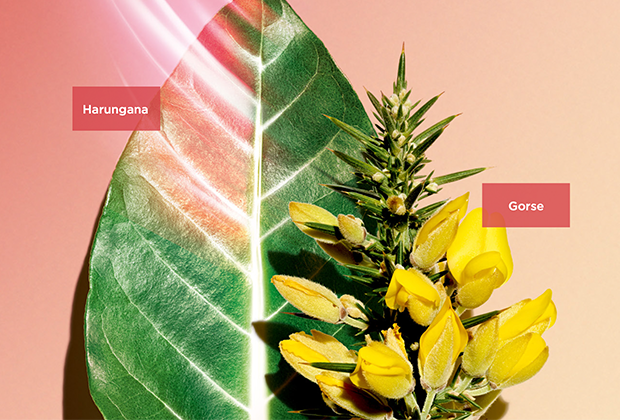
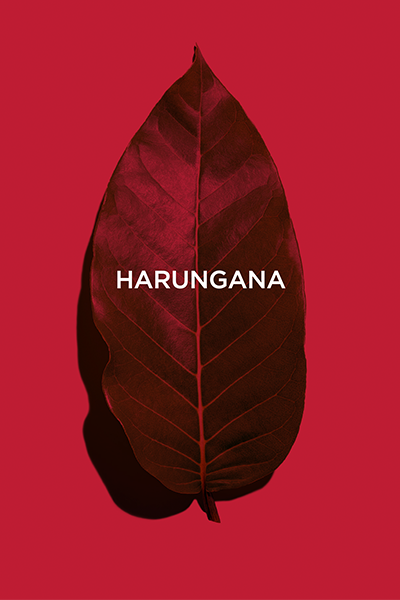
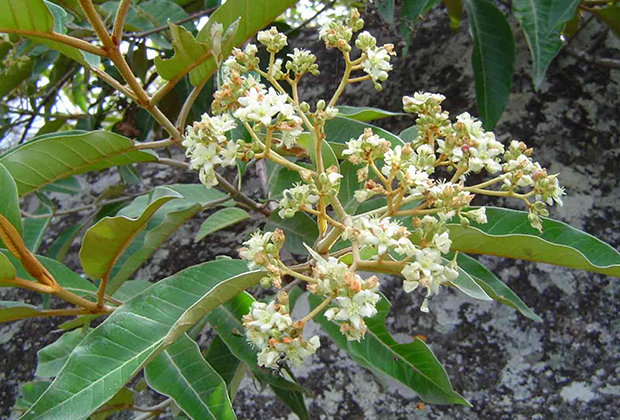
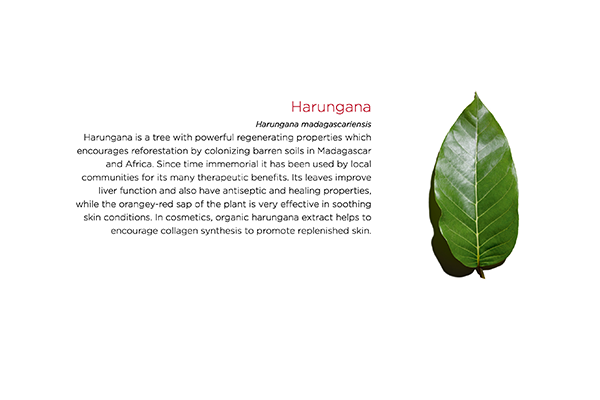
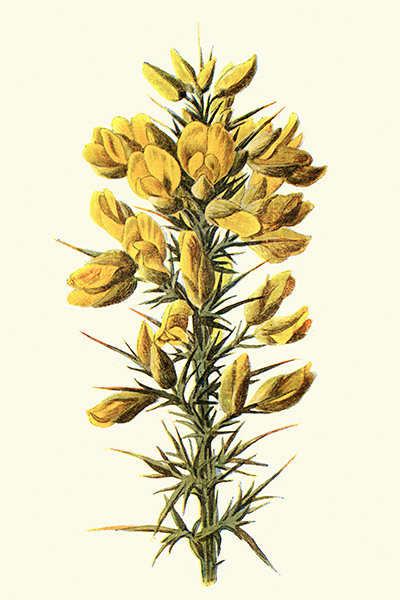

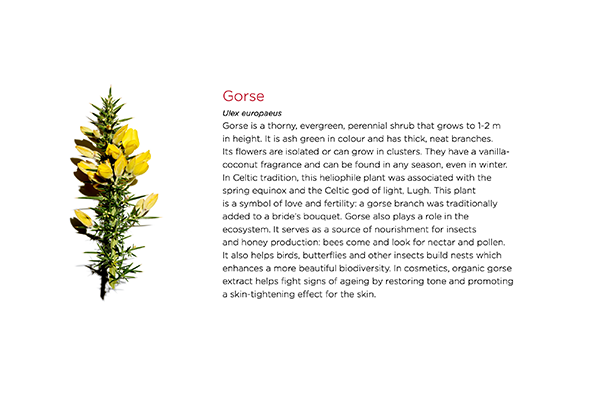
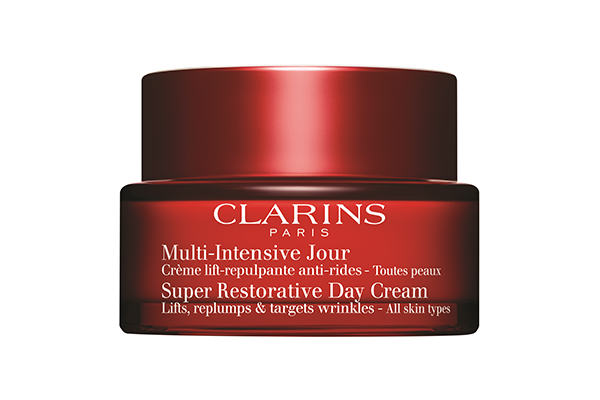
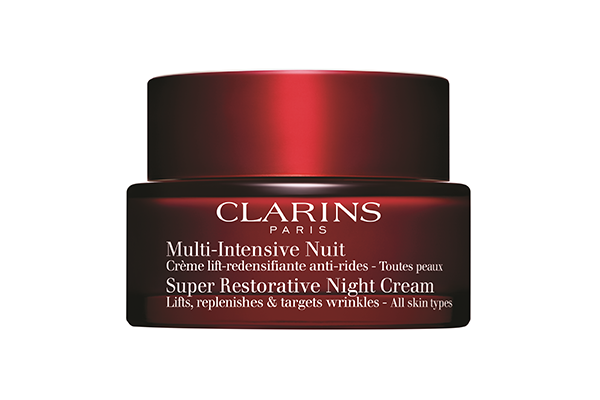
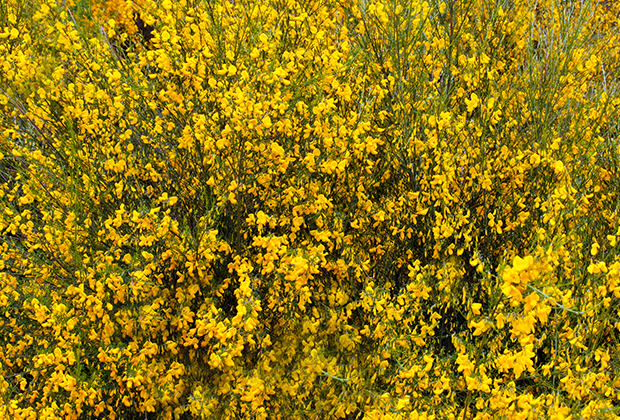
362 Comments
Susan T.
February 7, 2023 at 1:59 pmI was lucky enough to sample these creams. They’re great!
Claudia N.
January 10, 2023 at 10:06 pmVery exciting to see new discoveries in skincare!
Sequoia
January 9, 2023 at 11:21 amThank you so much for sharing about these plants, harunga and gorse! These both sound power-packed and I love learning of quality, effective ingredients (especially collagen) that are plant-based! 😍🌿💚
Wendy Lam-Vechi
January 6, 2023 at 7:29 amI never knew Clarins does so much to get it’s innovative ideas. Their scientists have probably helped provide so much knowledge to the Science world and help us understand the world around us, I’m astound.
Lori Padgett
December 30, 2022 at 1:45 pmI’ve never heard of ‘harungana’ or ‘gorse’ until reading this article. Sounds like Harungana extract will be a game changer for skin care regimens.
Linda L
October 8, 2022 at 6:59 pmI’m using the super restorative line and it’s excellent for my skin. Love Clarins and all the research that is done to create a remarkable product.
Sophie
September 21, 2022 at 11:06 pmOut of 400 plants studied, only 10 are considered interesting enough to analyse them further. Fascinating!
Tana Koch
September 21, 2022 at 7:50 pmIt’s amazing everything we are using plants for, from cosmetics to skincare and we are eating more products made with plants. Who ever thought anyone might eat a burger made from plants? Not me.
Erika Meyers
September 21, 2022 at 6:48 pmOOO, let’s target those wrinkles!
Brook Heath
September 21, 2022 at 6:16 pmI had no idea that Clarins was the type of brand associated with the use of powerful botanicals. No clue!
Georgie Wright
September 21, 2022 at 6:06 pmIt’s pretty awesome that Harungana extract is nature’s answer to retinol.
MJ Symmonds
September 21, 2022 at 5:56 pmIt’s amazing the benefits derived from plants
Nafeeza Nazirbage
September 21, 2022 at 5:50 pmAmazing work by Clarins, incorporating these exceptional plants in their products is truly combining science and nature to give us incredible skincare with great results. I love the Multi-Intensive Night Cream, it is Super Restoring. @nnazirbage
Patricia B
September 21, 2022 at 5:28 pmI love Clarins effective plant based formulas! The Super Restorative Night Cream is a favorite! @fatamorgana1986
Brenda Goldfarb
September 21, 2022 at 5:17 pmI love that Harungana is a plant based, effective alternative to retinol.
Tracy
September 21, 2022 at 4:41 pmI like their products.
Sue O'Riordan
September 21, 2022 at 4:30 pmClarins uses so many powerful plant extracts to deliver on skincare needs at the highest level while smelling so delightful.
Tracy B
September 21, 2022 at 4:10 pmThank you for such an interesting and educational post. I never realised the humble Gorse plant could be so useful for skincare, until now I’d always regarded it as a thorny weed that insects and birds loved, amazed that the Harungana boosts its efficacy by so much as well as being a plant based source of retinol. Plants really are incredible
Amy s
September 21, 2022 at 2:04 pmI love that Harungana plant is gentle but as effective as retinol! Sounds amazing! @healthnbeautyg)
Jamie Johnson
September 21, 2022 at 1:45 pmWow! Dave this is such a good piece!! Incredible! If I had a time machine, one thing I’d do is study botany and become a member of a team like Clarins. Or become a master perfumer. I love this stuff!! It is fascinating to me. I love that Nathalie said her favorite plant is the one that has not been discovered yet. I, like Jon Snow, know nothing when it comes to plants! I killed a cactus AND an aloe vera plant that was over 10 years old! I think one of the most interesting things I learned from this piece is that Gorse has a coconut-vanilla fragrance, can grow anywhere and all year long, and is a symbol of love and fertility. And so many other interesting facts about Gorse have just blown my mind! Thank you, Dave, for this absolutely amazing piece!! Sending u tons of love and hugs!! xoxoJJ @BaBy_J_55
Irene
September 21, 2022 at 1:30 pmGreat for dry skin
Ernestine Perez
September 21, 2022 at 1:09 pmWow, Clarins rocks using the best plants for their skincare! The power of a plant surprises me! @92227Cali
Lesley T
September 21, 2022 at 12:46 pmGorse! That incredibly invasive plant that has taken over so much of the west coast – thank goodness there is a use for it – maybe skincare can help to get it under control!
Lisa O. (meelees)
September 21, 2022 at 12:39 pmI need to get into a day and night time routine. These sound perfect!
Thank you for all of the great information above. I’m going to research harungana for headaches. I get several after hitting the back of my head a few years ago suffering tbi headaches often.
sarah robinson
September 21, 2022 at 12:16 pmthe power of plants is something I never knew